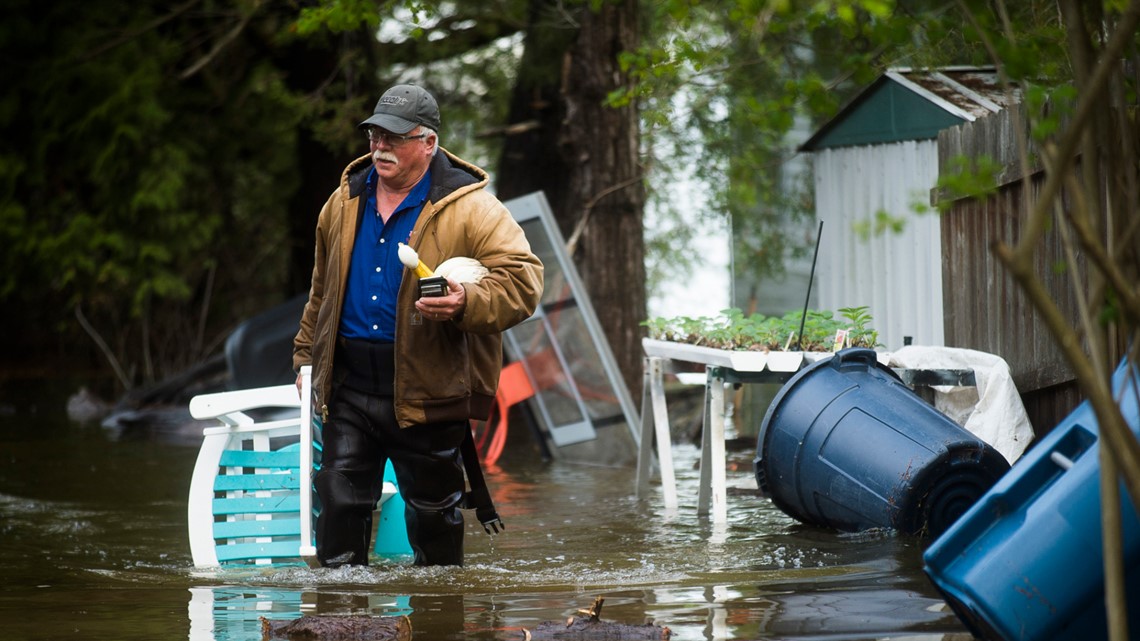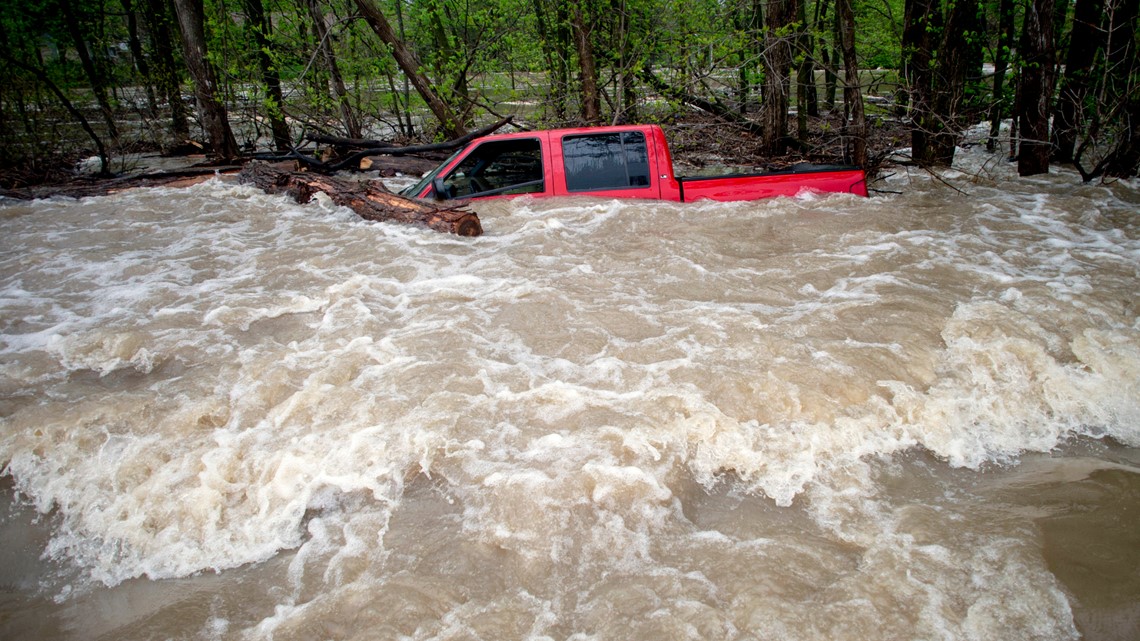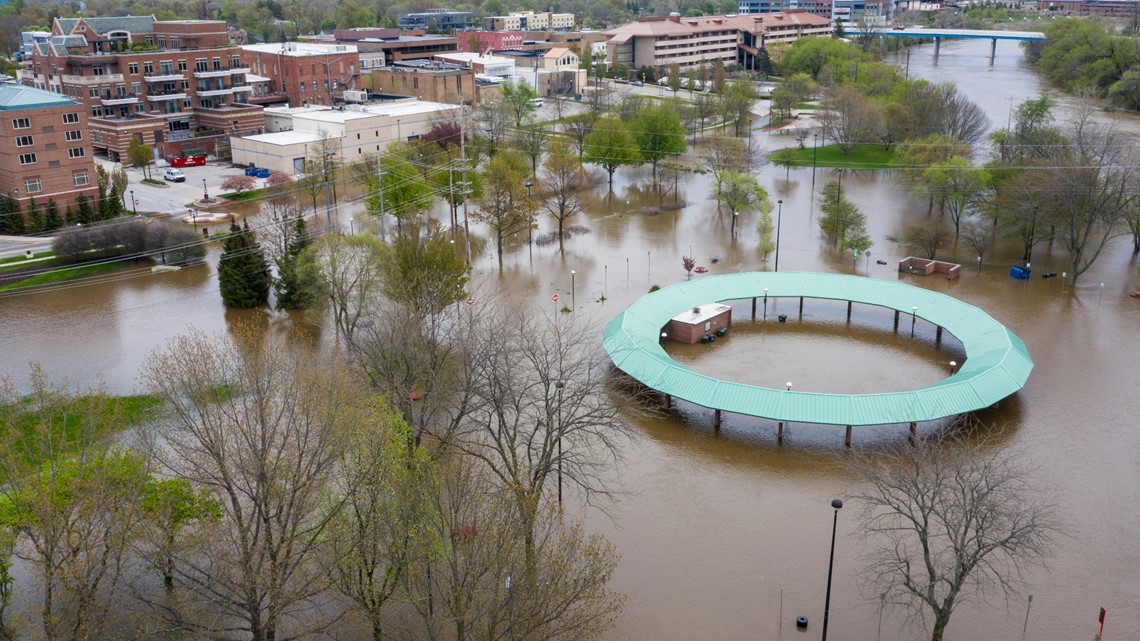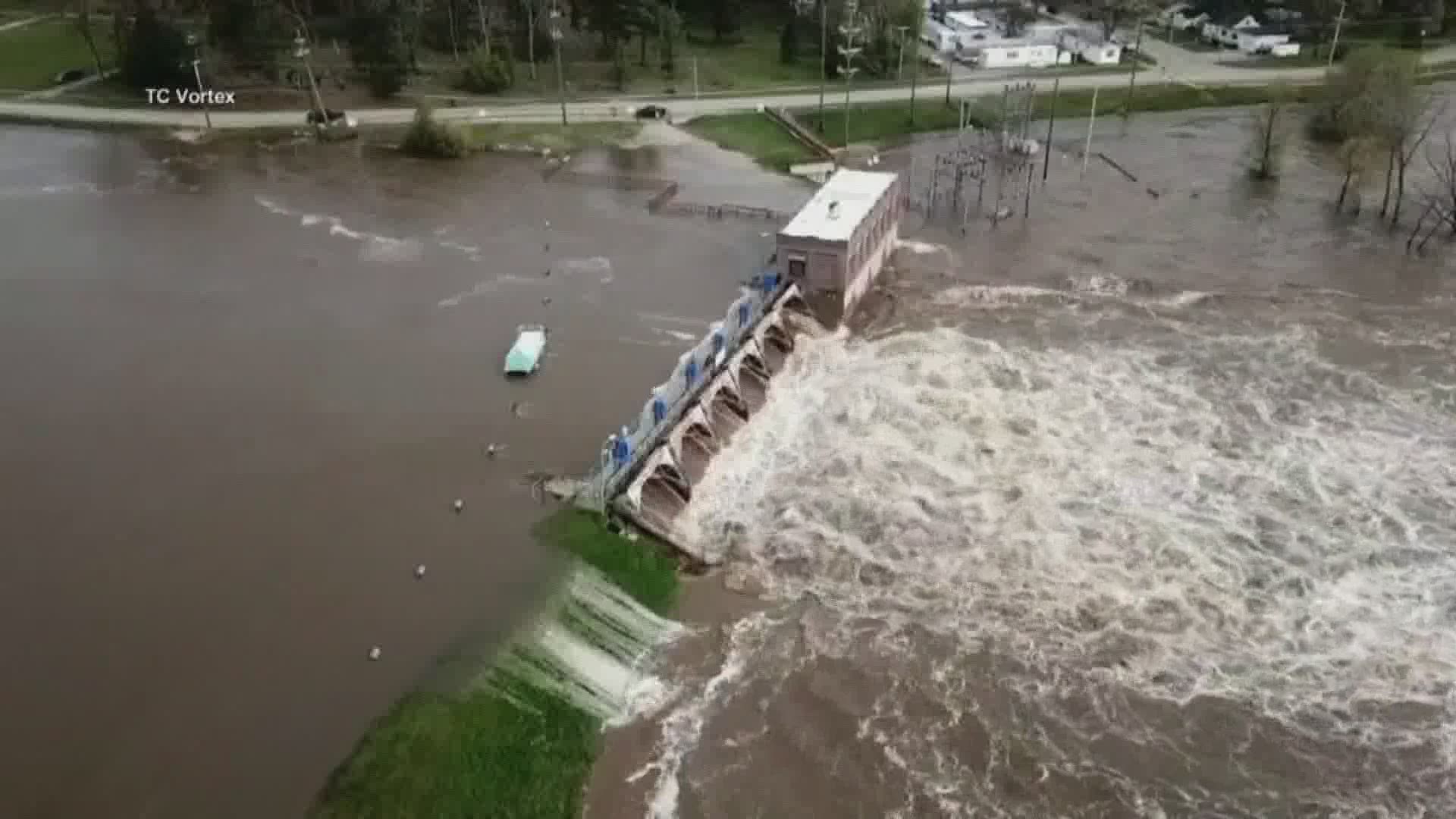MIDLAND, Mich. — Rapidly rising water overtook dams and forced the evacuation of about 10,000 people in central Michigan, where flooding struck communities along rain-swollen waterways and the governor said one downtown could be “under approximately 9 feet of water" by Wednesday.
For the second time in less than 24 hours, families living along the Tittabawassee River and connected lakes in Midland County were ordered Tuesday evening to leave home. By Wednesday morning, water that was several feet high covered some streets near the river in downtown Midland, including riverside parkland, and reaching a hotel and parking lots.
The river rose Wednesday morning to 34.4 feet (10.5 meters) in Midland, topping a previous record reading of 33.9 feet (10.3 meters) set during flooding in 1986, the National Weather Service said. Its flood stage is 24 feet (7.3 meters), and it was expected to crest by day's end at about 38 feet (11.6 meters).
The Weather Service urged anyone near the river to seek higher ground following “castastrophic dam failures” at the Edenville Dam, about 140 miles (225 kilometers) north of Detroit, and the Sanford Dam, about seven miles (11 kilometers) downriver. The evacuations come as Michigan remains under a stay-at-home order to prevent the spread of the coronavirus.
Michigan Gov. Gretchen Whitmer, said downtown Midland, a city of 42,000 about 8 miles (14 kilometers) downstream from the Sanford Dam, faced an especially serious flooding threat. Dow Chemical Co.'s main plant sits on the city's riverbank.
“In the next 12 to 15 hours, downtown Midland could be under approximately 9 feet of water," the governor said during a late Tuesday briefing. "We are anticipating an historic high water level.”
Steve Carlson, 61, said he and his wife, Patty, fled their Midland home about 8:30 p.m. Tuesday on their own accord after an evacuation order was issued for large swath of the city and they noticed neighborhood creeks were spilling over local roads, threatening some homes.


“They had risen a lot and the worst was yet to come,” he said Wednesday morning.
One couple who lives in their neighborhood decided to stay put, but Carlson said everyone else evacuated themselves from the area. They spent the night in a hotel. He said they’ve been wearing face masks in the hotel to protect themselves from the coronavirus.
“The hotel was very happy to be see people coming in. There were refugees coming in,” he said with a laugh.
Further down the Tittabawassee River, communities in Saginaw County were on alert for flooding, with a flash flood watch in effect Wednesday.


“It's going to continue downriver,” Sara Pampreen, a weather service meteorologist, said Wednesday morning. “Just exactly how much, that’s the question.”
Whitmer declared a state of emergency for Midland County and urged residents threatened by the flooding to find a place to stay with friends or relatives or to seek out one of several shelters that opened across the county. She encouraged people to do their best to take precautions to prevent the spread of the coronavirus, such as wearing a face covering and observing social distancing “to the best of your ability.”


“This is unlike anything we’ve seen in Midland County,” she said. ”If you have a family member or loved one who lives in another part of the state, go there now."
Emergency responders went door-to-door early Tuesday morning warning residents living near the Edenville Dam of the rising water. Some residents were able to return home, only to be told to leave again following the dam's breach several hours later. The evacuations include the towns of Edenville, Sanford and parts of Midland, according to Selina Tisdale, spokeswoman for Midland County.
“We were back at home and starting to feel comfortable that things were calming down,” said Catherine Sias, who lives about 1 mile (1.6 kilometers) from the Edenville Dam and first left home early Tuesday morning. “All of a sudden we heard the fire truck sirens going north toward the dam.”
Sias, 45, said emergency alerts then began coming on her cellphone and people started calling to make sure she was safe.
“While packing, there were tons of police and fire trucks going up and down the roads,” she added. “As far as I know, all of our neighbors got out.”
Dow Chemical has activated its emergency operations center and will be adjusting operations as a result of current flood stage conditions, spokeswoman Rachelle Schikorra said in an email.
In 2018, the Federal Energy Regulatory Commission revoked the license of the company that operated the Edenville Dam due to non-compliance issues that included spillway capacity and the inability to pass the most severe flood reasonably possible in the area.
The Edenville Dam, which was built in 1924, was rated in unsatisfactory condition in 2018 by the state. The Sanford Dam, which was built in 1925, received a fair condition rating.
Both dams are in the process of being sold.
There were 19 high hazard dams in unsatisfactory or poor condition in Michigan in 2018, ranking 20th among the 45 states and Puerto Rico for which The Associated Press obtained condition assessments.
Flood warnings in Michigan were issued following widespread rainfall of 4 to 7 inches (10.2 to 17.8 centimeters) since Sunday, according to the National Weather Service. Heavy runoff pushed rivers higher.

